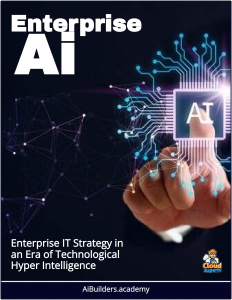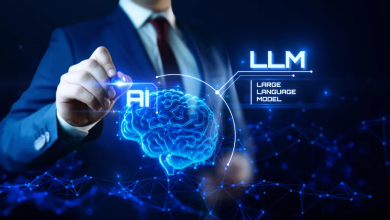 One of the most transformative technologies shaping the future of enterprises today is Artificial Intelligence (AI).
One of the most transformative technologies shaping the future of enterprises today is Artificial Intelligence (AI).
Technology leaders are presented with a uniquely powerful opportunity, and challenge, to incorporate the most disruptive evolution of IT to unlock new opportunities, enhance decision-making processes, and drive unparalleled growth.
AI will redefine the way businesses operate, innovate, and engage with customers. The technology will play a pivotal role in ushering in and driving a new era of digital transformation within enterprise organizations.
CIOs face a transformative landscape with the rise of Agentic AI—autonomous, goal-driven systems that promise to reshape business operations, decision-making, and IT strategy. Preparing for this era requires a blend of technological foresight, organizational alignment, and risk management.
Harnessing The Ai Era
The rise of AI is not merely a technological evolution—it is a seismic shift that redefines the boundaries of what enterprises can achieve. For CIOs and senior executives steering the helm of large organizations, this is both a clarion call and an unprecedented opportunity.
We stand at the precipice of a new age—one where AI transcends its role as a tool and emerges as a foundational pillar of business success. The convergence of vast computational power, boundless data, and algorithms capable of learning, reasoning, and adapting at superhuman speed has birthed what we call hyper intelligence.
This is not the AI of science fiction, nor the incremental automation of yesterday. It is a force that amplifies human ingenuity, reshapes operational paradigms, and reconfigures competitive landscapes with breathtaking velocity.
For the enterprise, the stakes could not be higher. Organizations that harness AI effectively will unlock efficiencies, insights, and innovations that were once unimaginable, while those that falter risk obsolescence in a world that waits for no one. Yet, the journey to AI mastery is not without its complexities. It demands a bold reimagining of IT strategy—one that aligns cutting-edge technology with the timeless imperatives of business value, resilience, and ethical stewardship.
McKinsey estimates that AI could add up to $13 trillion to global GDP by 2030, with early adopters already reporting productivity gains of 20-30% in key functions. Yet, for all its promise, AI adoption at scale remains a complex endeavor, fraught with challenges ranging from data readiness and ethical considerations to talent shortages and integration hurdles.
An Enterprise Ai Roadmap
This guide is designed to empower enterprise CIOs with the knowledge and tools needed to successfully integrate AI into their organizations. From streamlining IT operations and bolstering cybersecurity to enabling data-driven insights and fostering a culture of innovation, AI holds the potential to reshape every facet of the enterprise.
We explore how to align AI initiatives with business objectives, build a robust technological foundation, and foster a culture that embraces intelligent innovation.
- Operational Efficiency: AI streamlines processes, reduces costs, and enhances productivity. Examples include supply chain optimization, predictive maintenance for equipment, and automated HR onboarding.
- Customer Experience: AI personalizes interactions and improves engagement. Applications include recommendation engines, AI-powered customer service agents, and hyper-targeted marketing campaigns.
- Innovation and Product Development: AI drives new revenue streams and business models. Enterprises leverage it for product design (e.g., generative AI for prototyping), market trend analysis, and developing AI-native services.
Enterprises that harness AI effectively stand to redefine their industries, unlocking unprecedented efficiencies, deeper customer insights, and innovative products and services. Those that hesitate risk obsolescence in a world where agility and intelligence are the new currency of competition.



